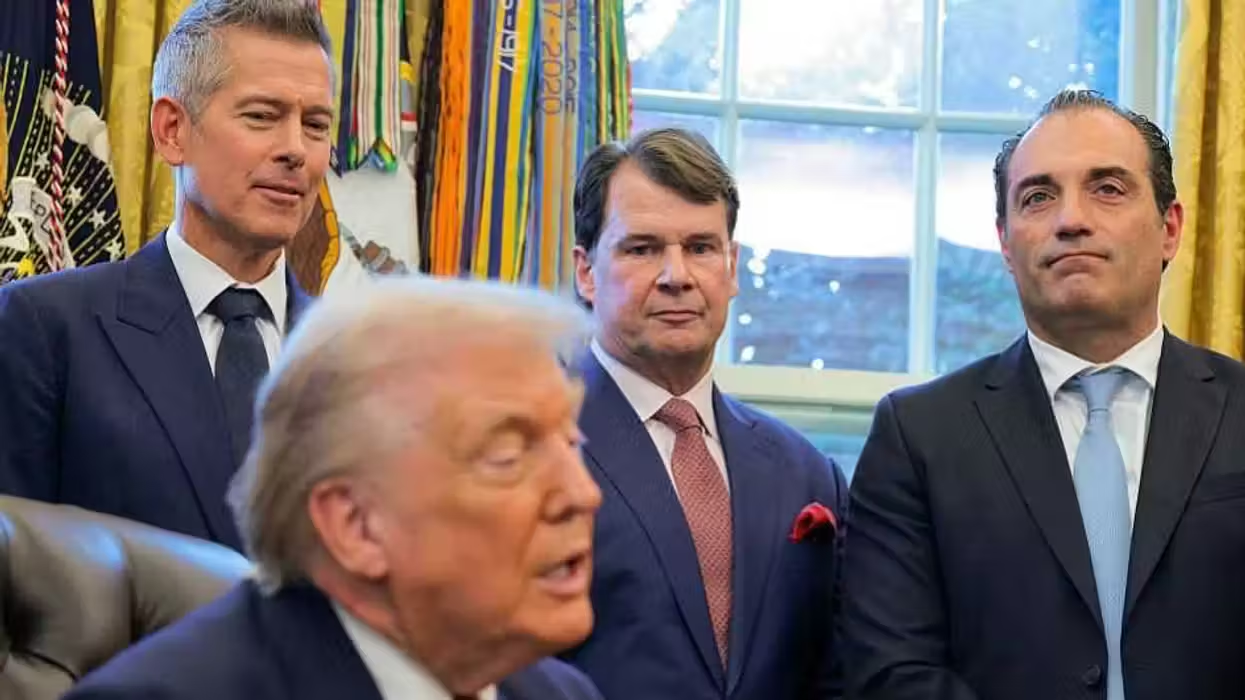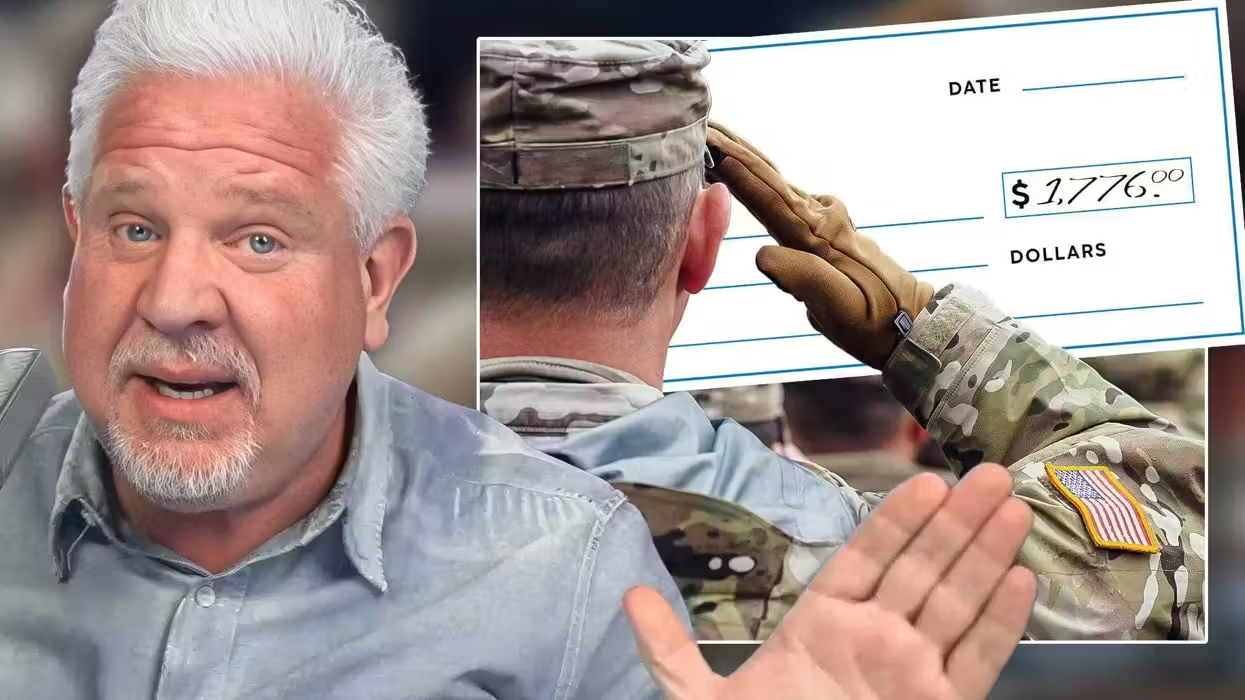
© 2025 Blaze Media LLC. All rights reserved.
What Exactly Could Happen When the Government 'Shuts Down'? Here's a Quick Guide
September 30, 2013
UPDATE 4:00 p.m. EST -- When asked about the possibility of sending the senate a "clean" continuing resolution, House Speaker Boehner said it's "not going to happen."
Meanwhile, the senate passed a bill to make sure members of the military receive pay if (when?) the government shuts down.
UPDATE 2:10 p.m. EST -- The U.S. Senate has rejected the House's budget bill, bringing us one step closer to a government shutdown.
From the Washington Post:
The 54 to 46 party-line vote made good on a vow by Senate Majority Leader Harry M. Reid (D-Nev.) to reject a funding bill approved by the House early Sunday because it would delay Obama’s signature 2010 health-care law for one year and repeal a tax on medical devices.Immediately after the Senate convened Monday afternoon, Reid moved to table the House amendments. That exercise required a simple majority and was accomplished solely with Democratic votes.
The ball is once again in House Speaker John Boehner's court.
------
As the U.S. Senate resumes business on Monday, it seems increasingly likely a budget deal won’t be worked out in time for Tuesday's deadline.
If that happens and Congress fails within the next 24 hours to hammer out a spending bill to keep the government running, the U.S. government goes into a partial shutdown.
Here's how the shutdown could affect you and the government (take most of these claims with a grain of salt. They could very well be overblown. It wouldn't be the first time that a government mess was oversold as a total disaster):
 Speaker of the House John Boehner (R-Ohio) arrives at the U.S. Capitol for the day's business Sept. 30, 2013 in Washington, D.C. (Getty Images)
Speaker of the House John Boehner (R-Ohio) arrives at the U.S. Capitol for the day's business Sept. 30, 2013 in Washington, D.C. (Getty Images)
First things first:
More than a third of federal workers would be told to stay home, according to officials estimates. That’s roughly 800,000 of the nation's 2.1 million federal workers.
Supervisors at government agencies met last week to decide which "essential" and “non-essential” employees would be kept on during the shutdown.
Employees who are deemed essential and keep working will not be paid during the shutdown. But that’s really not that bad considering the fact that once Congress does approve new funding, they would receive retroactive pay.
Government won’t cease to exist:
Services considered critical to national security, safety and health during the shutdown would go on as usual, such as border patrol, law enforcement and emergency and disaster assistance.
Social Security and Medicare benefits would keep coming, for example, but there likely would be delays in processing new disability applications.
Active-duty military personnel are exempt from furloughs, as are employees of the U.S. Postal Service, which doesn't depend on annual appropriations from Congress.
The House also passed a bill Saturday night ensuring that all military would continue to receive pay in the event of a shutdown.
But this is how a shutdown may affect government:
The White House: Approximately one-third of the White House's staff could be furloughed, according to a contingency playn put together by the administration.
Roughly 1,265 White House employees would be sent home and around 436 presidential staffers would be designated as exempt and continue working despite a shutdown, The Hill reports, citing a letter from the Office of Management and Budget.
"The White House will maintain minimal staffing consistent with supporting the president in the discharge of his constitutional duties, including staff required to work with the Congress in the enactment of appropriations," Katy Kale, the assistant to the president for management and administration, said in the letter.
The Smithsonian: A majority of the 6,400 Smithsonian employees at 19 museums would be furloughed, said spokeswoman Linda St. Thomas. Museum doors would remain closed as of 10 a.m. Tuesday.
Parks: A contingency plan for the National Park Service prepared in 2011 -- the last time a shutdown loomed -- said all 401 of the country's national parks would close and cease activities except for those necessary to respond to emergencies. Associated websites will also go offline.
Federal courts: Federal courts plan to keep operations going for at least 10 business days in the event of a shutdown - roughly through Oct. 15 - using fees and other funds.
But after that, only essential work would continue, and each court would determine what staff is needed, according to a Sept. 24 memo from U.S. District Judge John Bates, director of the Administrative Office of the United States Courts.
Federal jury trials should continue as necessary, the memo said, and staff performing essential work at federal courts would report to work without getting paid. They would be paid when appropriations were restored.
Library of Congress: In the event of a partial shutdown, at least a few government websites will go offline, including the Library of Congress and the National Park Service.
Department of Housing and Urban Development: Most of the Department of Housing and Urban Development's operations would cease under the shutdown, according to department spokesman Jereon Brown. The Federal Housing Administration, which is overseen by HUD, won't be able to underwrite or approve any new loans during the shutdown, Brown said.
EPA: The Environmental Protection Agency would essentially be closed to most of its approximately 17,000 employees, except for those involved in shutting down systems, tasked with emergency cleanups or doing legal work in ongoing federal cases, said John O'Grady, president of the local union of EPA employees in Chicago.
 Senate Majority Leader Harry Reid (D-NV) arrives at the U.S. Capitol as Congress remains gridlocked over legislation to continue funding the federal government Sept. 30, 2013 in Washington, D.C. (Getty Images)
Senate Majority Leader Harry Reid (D-NV) arrives at the U.S. Capitol as Congress remains gridlocked over legislation to continue funding the federal government Sept. 30, 2013 in Washington, D.C. (Getty Images)
NASA: The group is still working on shutdown plans, but the agency doesn't have a launch scheduled until Nov. 6, spokesman Bob Jacobs said. Nearly all but a few hundred of the space agency's 18,000 employees would be furloughed under a contingency plan outlined in 2011.
In past shutdown threats, the space agency considered essential the operations of the International Space Station, where astronauts and cosmonauts live, and planned to continue supporting the mission if the government had shuttered, Jacobs said.
This is how a shutdown may affect you:
Foot the Bill: The 1995-1996 shutdown cost approximately $1.4 billion (about $2 billion in today's dollars), according to Yahoo! Finance.
Maya MacGuineas, president of the Committee for a Responsible Federal Budget, claimed contingency plans for furloughed workers will cost taxpayers. She also said less government spending may have a detrimental effect on the economy (which, of course, comes right back to taxpayers).
Mortgages: With the Federal Housing Administration taking a hit due to a shutdown, there will be fewer mortgage approvals. And for the ones that are approved, the process will be much slower than usual.
"Part of the economic recovery is the housing industry," MacGuineas said. "It's sort of dangerous to think about slowing down housing [by way of ] a self-inflicted wound at the very time when we want to make sure that [the housing] market...is continuing to move along and help the economy to grow."
Travel: A shutdown may cause a delay in the processing of passports and visas.
"The tourism industry can be hit quite hard as can the airline and travel sector," MacGuineas said, adding that more than 200,000 passports went unprocessed because of the 1995 shutdown.
Social Security: Although the issuance of Social Security checks won’t suffer from a shutdown, enrollments will be.
Temporarily at least. It all depends on how many Social security workers get furloughed.
As of this writing, the Office of Management and Budget was still deciding which essential and “non-essential” workers will be furloughed.
FINAL THOUGHT: Even if a shutdown is avoided, Congress in a few weeks still needs to come to an agreement over raising the debt ceiling.
This is actually far more important and carries far more consequences.
If the government remains partially shut down and both parties fail to strike a debt ceiling deal, the Treasury Department will default on its payments, a first in U.S. history. This could cause real damage to the global markets and the U.S. economy.
Markets are understandably unhappy with these developments:
 No one is happy with Washington right now:
No one is happy with Washington right now:
--
Follow Becket Adams (@BecketAdams) on Twitter
The Associated Press contributed to this report.
[related]
Want to leave a tip?
We answer to you. Help keep our content free of advertisers and big tech censorship by leaving a tip today.
Want to join the conversation?
Already a subscriber?
more stories
Sign up for the Blaze newsletter
By signing up, you agree to our Privacy Policy and Terms of Use, and agree to receive content that may sometimes include advertisements. You may opt out at any time.
Related Content
© 2025 Blaze Media LLC. All rights reserved.
Get the stories that matter most delivered directly to your inbox.
By signing up, you agree to our Privacy Policy and Terms of Use, and agree to receive content that may sometimes include advertisements. You may opt out at any time.






